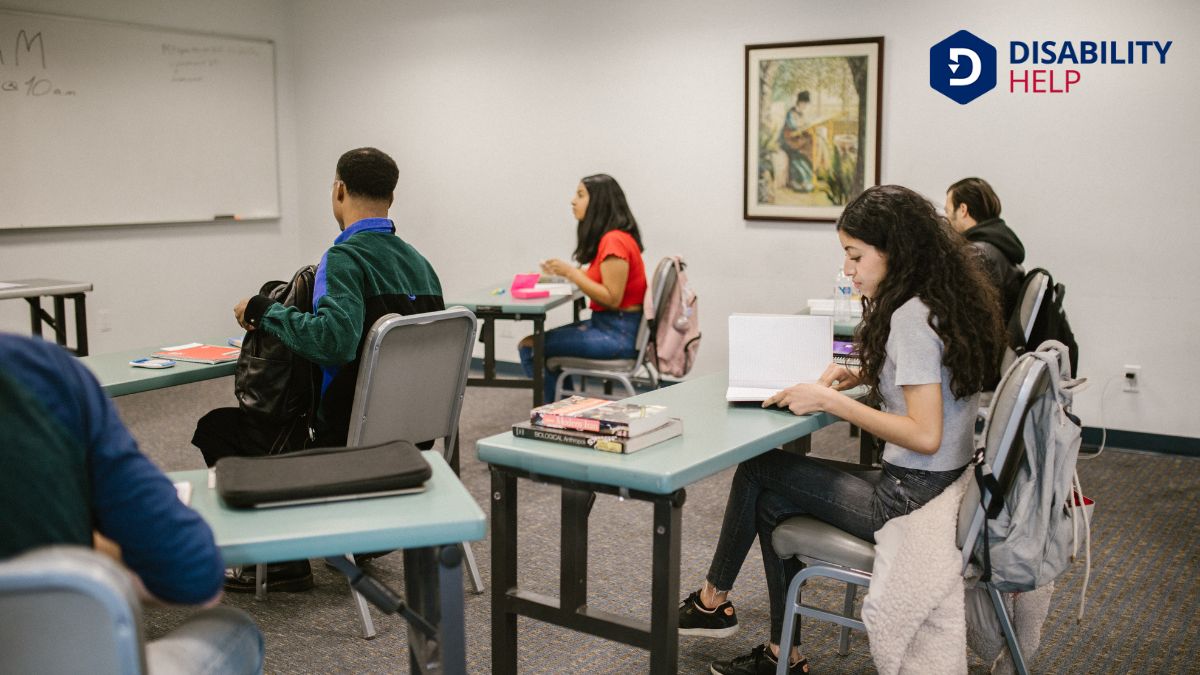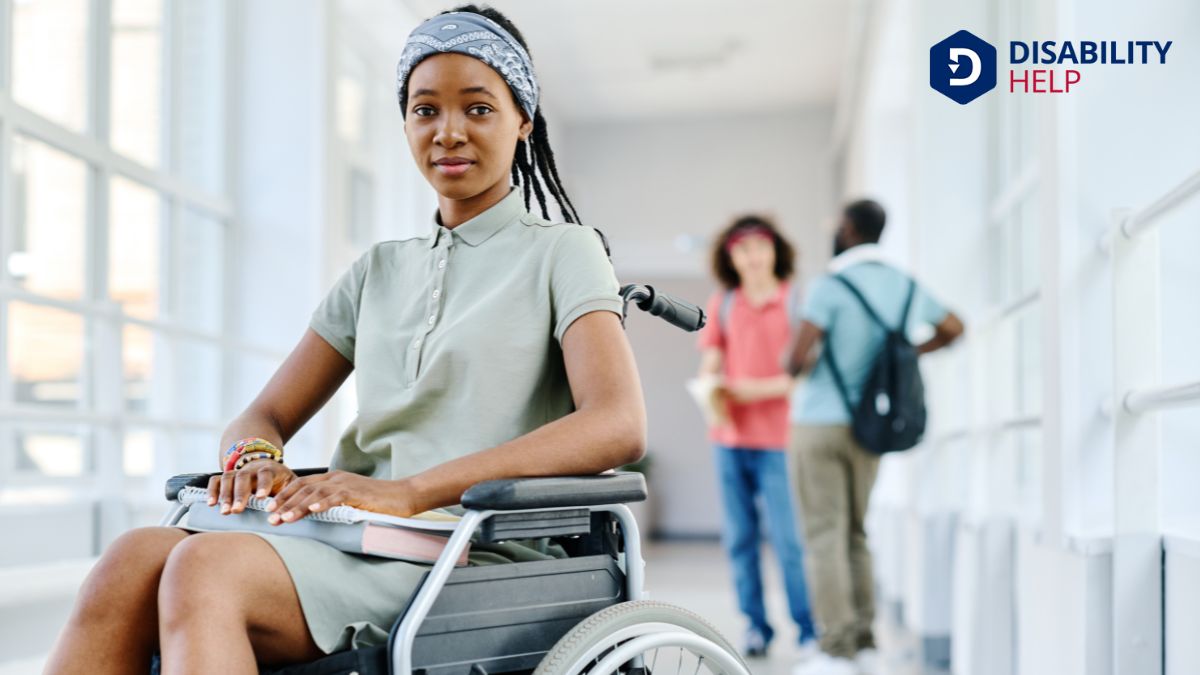We're here to support college students with disabilities with a range of resources. Assistive technologies, like screen readers and speech-to-text software, enhance learning. Academic accommodationsModifications or adjustments in healthcare settings to support patients with disabilities. guarantee fair access to education, while support services like counselingProfessional guidance to help individuals cope with emotional, mental, or social challenges, particu... and peer mentoringA relationship where a more experienced individual with a disability provides guidance and support t... provide guidance. AdvocacyThe act of arguing in favor of, supporting, or defending the rights and interests of individuals or ... groups empower students, making certain their voices are heard. Financial aid options and scholarships help ease financial stress. Let's explore how these resources can create an inclusive educational experience for you.
Key Takeaways
- Assistive technologies like screen readers and speech-to-text software enhance accessibilityThe design of products, devices, services, or environments to be usable by people with disabilities.... for students with disabilities.
- Academic accommodations, such as extended exam time and note-taking services, ensure equal educational access.
- Support services, including disability services and counseling, provide personalized guidance and mental health support.
- Advocacy groups foster empowermentThe process of gaining control, authority, and power over one’s life, often used in the context of..., promote inclusionThe practice of creating environments in which any individual or group can be and feel welcomed, res..., and influence campus policies for students with disabilities.
- Financial aid options, such as federal aid and disability-specific scholarships, help alleviate college expenses.
Assistive Technologies: Enhancing Learning and Accessibility

When it comes to enhancing learning and accessibility for students with disabilities, assistive technologies play an essential role. These tools empower us by breaking down barriers and leveling the academic playing field.
Screen readers, for instance, transform text into audio, allowing us to absorb material through listening. Speech-to-text software lets us dictate our thoughts, turning spoken words into written text, which is invaluable for those with mobility or writing challenges.
Moreover, note-taking apps equipped with audio recording features help us capture lectures without missing critical details, and for students with visual impairments, magnification tools and braille displays provide access to digital content.
Academic Accommodations: Tailoring the Educational Experience
While assistive technologies provide essential tools for learning, academic accommodations tailor the educational experience to meet individual needs.
We see these accommodations as adjustments that guarantee equal accessThe principle that all individuals, including those with disabilities, should have equal opportunity... to education without altering the fundamental nature of courses. For instance, extended time on exams allows students to demonstrate their knowledge without the pressure of time constraints. Note-taking services can help those who struggle to keep up during lectures. Alternative formats for textbooks and materials guarantee we can access content in ways that suit our learning styles.
It's important that we work closely with disability services to identify and request the right accommodations.
Support Services: Building a Network of Assistance
Navigating college life can be challenging, but support services play an essential role in building a network of assistance for students with disabilities.
We recognize that finding the right help can make all the difference. It's imperative to know what resources are available and how to access them.
Here are some key support services we can utilize:
- Disability Services Office: This is our go-to for personalized accommodations and advice tailored to individual needs.
- Counseling ServicesProfessional guidance to help individuals cope with emotional, mental, or social challenges.: Offers mental health support, which is crucial for managing stress and emotional well-being.
- Peer Mentoring Programs: Connect with fellow students who can offer guidance and share experiences.
- Tutoring and Academic Support: Provides additional help in challenging courses, ensuring academic success.
Let's take advantage of these resources to navigate college effectively.
Advocacy Groups: Promoting Empowerment and Inclusion
Although maneuvering college with a disability can sometimes feel isolating, advocacy groups are here to foster empowerment and promote inclusion.
These organizations unite us, providing a supportive community that truly understands our unique challenges. By joining an advocacy group, we can connect with peers who share similar experiences, offering us a sense of belonging and understanding.
Advocacy groups also champion our rights, ensuring our voices are heard in academic and social settings. They work tirelessly to influence policies, creating a more inclusive environment on campus.
Through workshops, events, and mentorship programsPrograms that pair individuals with disabilities with experienced professionals to provide guidance ..., these groups equip us with the tools to advocate for ourselves, breaking down barriers to success.
Together, we can transform our college experience into one where everyone feels valued and included.
Financial Aid and Scholarships: Easing the Financial Burden

Steering through the financial landscape of college can be challenging, especially for students with disabilities, but financial aid and scholarships can greatly ease this burden.
By exploring available resources, we can alleviate some of the stress tied to tuition and other college expenses. Here are a few options to evaluate:
- Federal Financial Aid: Completing the FAFSA opens doors to grants, loans, and work-study opportunities tailored to our financial needs.
- State Programs: Many states offer scholarships specifically for students with disabilities, providing additional financial support.
- Private Scholarships: Organizations like the American Association on Health and Disability offer scholarships focused on disability and health-related fields.
- Institutional Aid: Colleges often have their own funds and scholarships dedicated to supporting students with disabilities.
Let’s embrace these opportunities to make education more accessible.
Conclusion
To sum up, let's remember that college students with disabilities have a wealth of resources at their fingertips. We can leverage assistive technologies to enhance learning and accessibility, while academic accommodations tailor the educational experience. Support services help us build a network of assistance, and advocacy groups promote empowerment and inclusion. Plus, financial aid and scholarships ease the financial burden. Together, these resources create an environment where all students can thrive and succeed.






